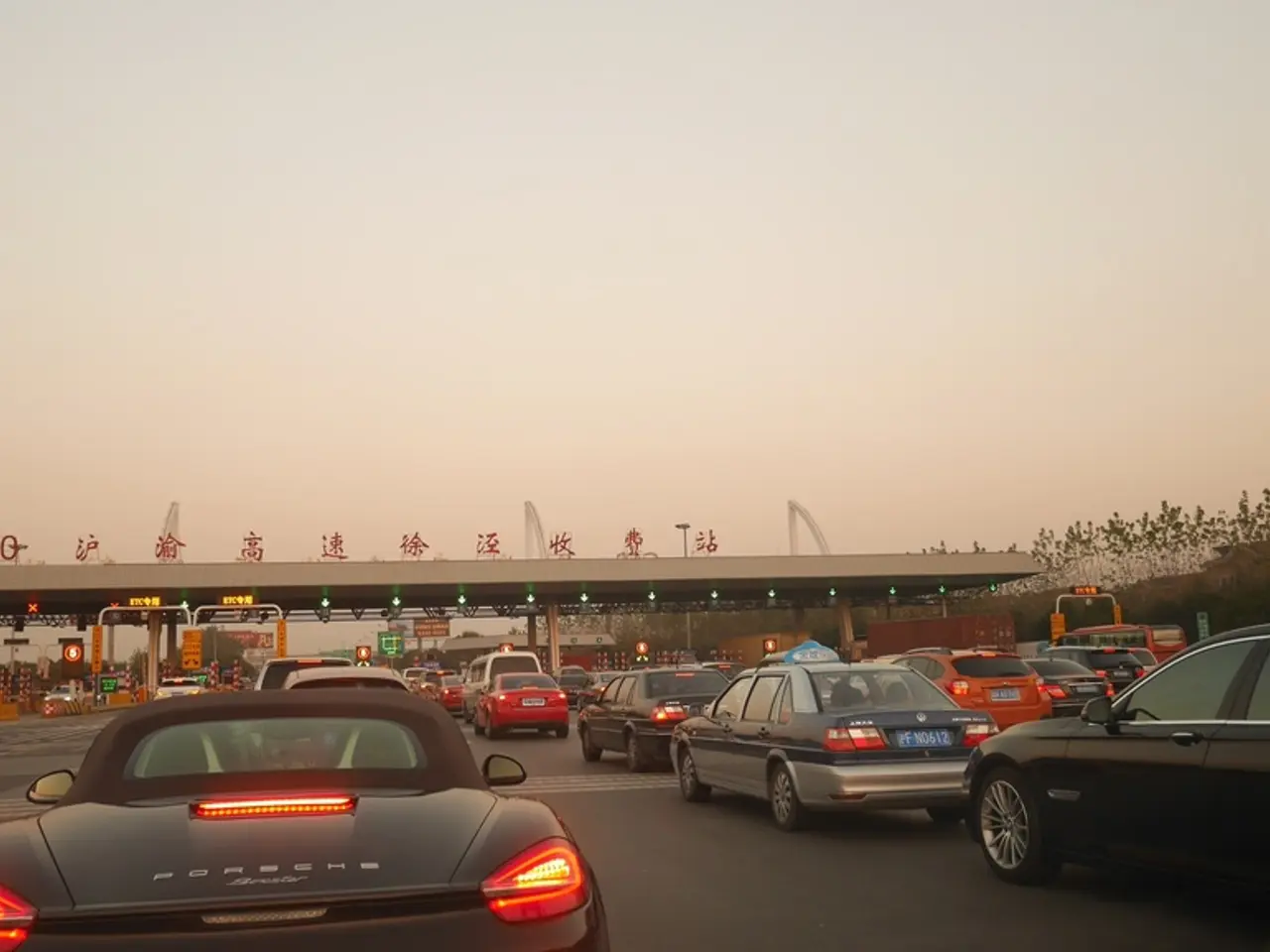Lawmaker Chirchir advocates for parliamentary approval of his road tolling policy proposal
Kenya's Proposed National Tolling Policy: Balancing Infrastructure Development and Public Concerns
Kenya is moving towards establishing a sustainable and dynamic tolling system to fund road development and maintenance. The proposed national tolling policy aims to introduce a system based on the "user pay charges" principle.
The policy includes several key points. Roads considered for tolling must have at least 5,000 vehicles daily and significant freight movement. Existing roads with improvements, such as the Nairobi-Mombasa Expressway and Rironi-Nakuru-Mau Summit Highway, are targeted for tolling.
The policy seeks to optimize revenue for infrastructure projects, attract private sector investment through Public-Private Partnerships (PPPs), promote good governance in toll operations, reduce traffic congestion, and lower carbon emissions. Toll revenues will specifically fund major infrastructure projects, with private investors financing and operating selected roads in exchange for toll income.
However, concerns have been raised about inclusivity and access due to the lack of viable alternative roads in some areas. The National Assembly Transport Committee has emphasized the importance of alternative toll-free routes to ensure motorists have choices and access.
Through public participation, Kenyans have called for accountability, transparency, exemptions for persons with disabilities, medical utility vehicles, and school buses, toll-sharing between national and county governments, stakeholder engagement in setting rates, discounts, and toll-free days. They have also called for shortening the policy review period from 10 to 5 years.
The policy is still under review and subject to adjustments based on further parliamentary and Cabinet engagements. The Transport Cabinet Secretary, Davis Chirchir, has urged lawmakers to support the policy and any required legal amendments to enable implementation.
The Road Tolling Policy is being developed by a multi-agency technical working group. The policy aims to guide selection and funding of road projects, providing a stable revenue stream for road development and maintenance. The proposed policy is expected to attract private sector investment, optimize revenue generation using advanced tolling technologies and modern highway maintenance systems, and promote good governance in toll operations and environmental sustainability by reducing congestion and carbon emissions.
The committee chaired by Ndia MP George Kariuki has insisted on alternative toll-free routes. The policy is intended to bridge the financing gap using funds from the Exchequer. The CS has urged the Committee to give their views and support the policy and any further amendments of the law to implement it. The policy for toll roads is still under review, with a focus on ensuring it balances revenue generation with public concerns for access and equity.
References:
- Nation
- Business Daily
- Capital FM
- Standard Digital
- The Star
- Given the nationwide debate, the proposed business-oriented national tolling policy should abundantly consider politics, ensuring that it addresses public concerns about inclusivity and access by establishing alternative toll-free routes.
- To effectively promote sustainable infrastructure development, the epaper reports suggest that the national tolling policy should emphasize good governance in toll operations, such as accountability and transparency, and foster Public-Private Partnerships (PPPs) in sports infrastructure, contributing to Kenya's burgeoning sporting events and activities.






